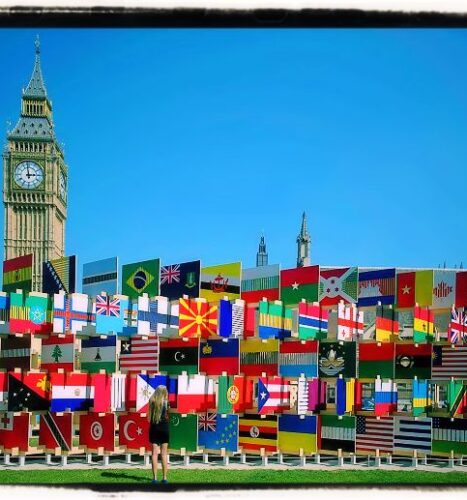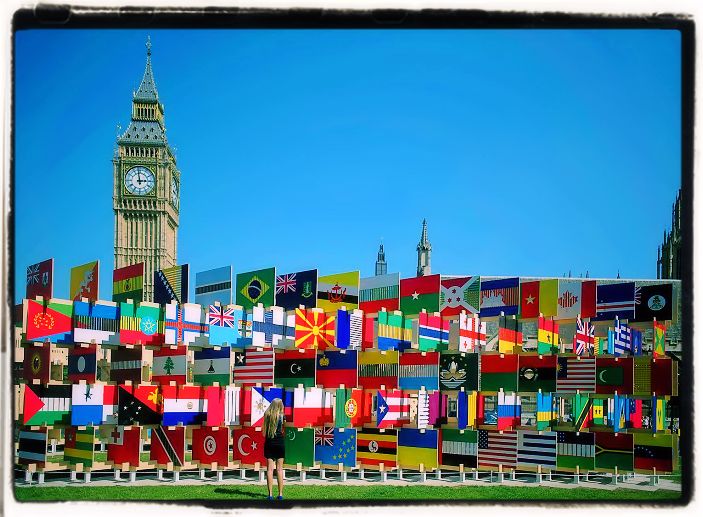
Multicultural Britain, a synthetic analysis and survey of multiculturalism in the United Kingdom.
We celebrate the diversity in our country, get strength from the cultures and the races that go to make up Britain today.
Tony Blair October 2001
Pit race against race, religion against religion, prejudice against prejudice. Divide and conquer! We must not let that happen here.
Eleanor Roosevelt
The deal with multiculturalism is that the only culture you’re allowed to disapprove of is your own.
Martin Amis
The barbarians never take a city until someone holds the gates open to them. And it’s your own multicultural authorities who will do it for you.
Christopher Hitchens
I wish you would read me like you read your books every day.
Beena Khan
Multiculturalism is in its essence anti-European civilization. It is basically an anti-Western ideology.
Samuel P. Huntington
Keep your language. Love its sounds, its modulation, its rhythm. But try to march together with men of different languages, remote from your own, who wish like you for a more just and human world.
Helder Camara,
Diversity is an aspect of human existence that cannot be eradicated by terrorism or war or self-consuming hatred. It can only be conquered by recognizing and claiming the wealth of values it represents for all.
Aberjhani
The fastest way to destroy a culture is to make it multicultural.
Robert Black
Race theorists, who are as old as imperialism itself, want to achieve racial purity in peoples whose interbreeding, as a result of the expansion of world economy, is so far advanced that racial purity can have meaning only to a numbskull.
Wilhelm Reich, The Mass Psychology of Fascism
Britain has a long history of absorbing people from different cultural or ethnic groups. If you walk down a street in Britain, especially in the bigger cities you will usually see people with different hair, skin and eye colours. They may have white, brown or black skin and blonde, brown, black, or red hair, with blue, black, brown or green eyes. Many of the people you will see will be British people but they all look different because the people of Britain are a mixed race.
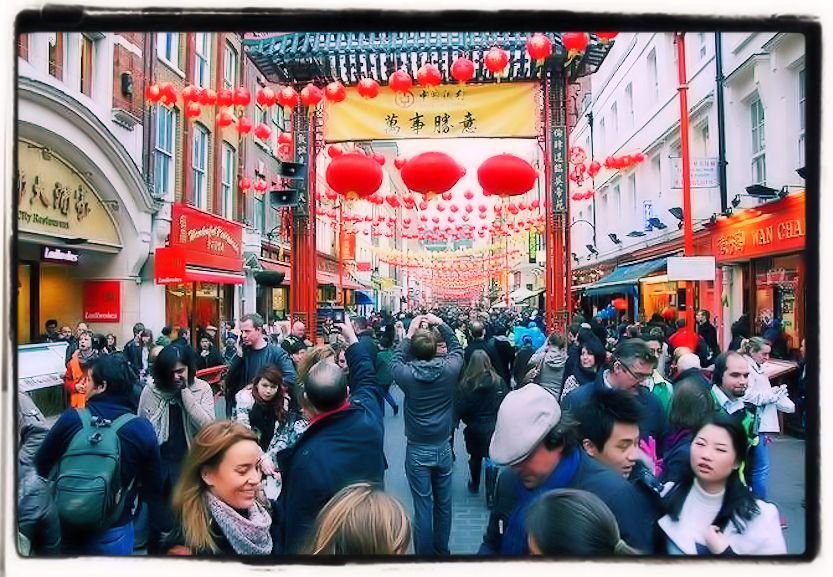
Britain is and has always been a mixed race society. Early in our history we were invaded by Romans, Saxons, Vikings and Normans armies and later Africans were brought to Britain by force in the seventeenth and eighteenth centuries as slaves or servants. Over the years, thousands of people have arrived in Britain as refugees from France, Ireland, Russia, and other countries, escaping from persecution or famine in their own countries.
Many people date the beginning of modern Britain back to 1066 when French invaders conquered the “English” king and took over the country. The effects of this invasion can still be felt today in the rules and language used to govern the UK. Indeed, it was only after a Parliamentary decree in 1362 that the English language – itself a mix of native and foreign dialects – came to be seen as the official language of Britain. At about the same time writers, such as Chaucer, started producing works in vernacular English. Even then the language popularised by this writing was really only a dialect spoken by the people in one part of the country.
Modern Britain is multicultural. Since the Second World War the United Kingdom has seen an influx of immigration that has radically altered its nature. The population has changed from one that was overwhelmingly white, ethnically British and Christian, to one constituted by creeds, cultures and communities drawn from all over the globe. A degree of demographic diversity that would have been scarcely imaginable in the middle of the previous century now forms an inescapable part of British life. A degree of demographic diversity that would have been scarcely imaginable in the middle of the previous century now forms an inescapable part of British life.
The term “multiculturalism” invokes these demographic changes, the intersecting political, legal and theoretical debates over how to respond to them, and governmental attempts to accommodate and even promote cultural diversity. Yet the economic, political and security challenges of the new millennium have put pressure on official support for multiculturalism, with several prominent politicians and social commentators repudiating key aspects of it.
The UK itself has long adopted a policy of multiculturalism in relation to immigrants. Put in very simple terms this means that the UK allows people from different cultures to live in the UK whilst continuing to practise their own cultural traditions rather than expecting them to adapt to, so-called, “British” ways. There are British people whose parents first came to Britain in the 1950s and 1960s from the Caribbean, India, Pakistan, Hong Kong and other places.
Their homes are mainly in the big English cities like London, Birmingham and Manchester. About 8% of the population of Britain today are people from other cultures and ethnicities. That is 4.6 million people. According to a BBC Report in September 2005, immigration made up more than half of Britain’s population growth from 1991 to 2001. The Guardian newspaper reported in 2007 that the latest government estimate for long-term net immigration to the UK is 145 000 a year.
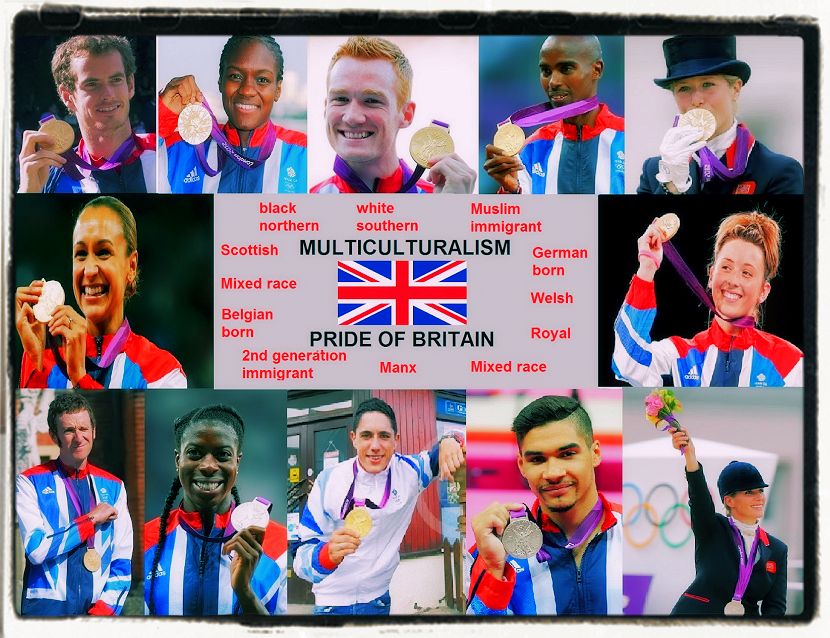
The English spoken today reflects many different roots, and continues to adopt and adapt words and phrases from other languages. The English language’s propensity to mould itself to the needs and experiences of its many speakers, may also be what makes it the “lingua franca” in so many countries around the world. People moving to Britain have brought their own cultures and try to keep two cultures and many more alive and so 250 different languages are spoken in London every day. An excellent example of this is the Notting Hill Carnival which is celebrates the Caribbean Culture and is now a very big part of the British life today.
It is still uncertain whether this rhetorical shift in the discourse of multiculturalism will translate into a full-scale retreat at the level of policy and law. Nevertheless, it is clear that British multiculturalism is undergoing a period of re-evaluation. It is also clear that the pressing practical and theoretical questions posed by multiculturalism in Britain remain unresolved.
The UK immigration policy continues to welcome visitors and skilled workers from abroad. However, in the last few years it has also become a stated aim of the UK immigration authorities to: strengthen the country’s borders; restrict the number and availability of work and student visas; implement a more structured visa application process; and, ensure that foreign nationals “earn” the right to acquire UK nationality.
These measures have undoubtedly been influenced by an increase in global immigration crime and terrorism. However, it is has also been felt necessary to address the apparent disenfranchisement of many first or second generation British nationals. A potential consequence of multiculturalism is that communities originating from other countries can become isolated from the supposedly indigenous population, leading to a lack of identity with the UK.
People from minority ethnic groups were more likely to live in England than in the rest of the United Kingdom. They made up 9 per cent of the population of England in 2001 compared with 2 per cent of the population of both Wales and Scotland and 1 per cent of the population of Northern Ireland . Nearly half (45 per cent) of the total minority ethnic population live in London.
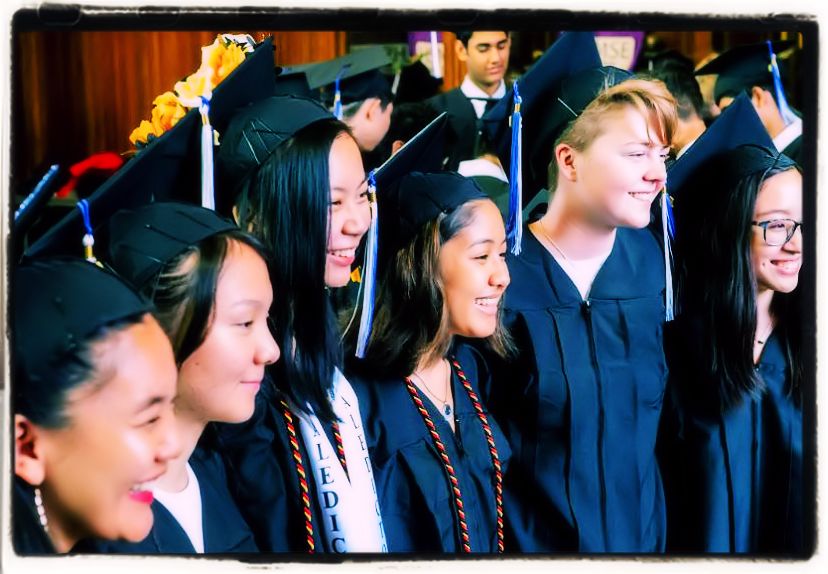
Timeline: Immigration to Britain
1100s
Merchants from Netherlands and settle
1500s
Queen Mary marries Philip of Spain
Dutch and French Protestants settle
1600s
Asians brought to England as Slaves
1700s
Refugees from the French revolution (1789) arrive
First records of Chinese sailors in London
1800s
Jewish arrivals fleeing persecution in Poland, Ukraine and Belarus.
Irish settlers escaping poverty during the famine in Ireland.
Trade brings Indian and Chinese people to main ports
Jews flee to UK from Russia and Poland
1900s
1914 – More than 250,000 Belgian refugees fled to the UK, escaping the fighting of the First World War.
1930s – Refugees from Nazi oppression arrive in the UK
1940 – 1960 – Polish people homeless because of the War, invited to come to UK
1948 – The boat Windrush brings 492 Jamaicans to the UK – thousands more follow Immigration from Caribbean encouraged to help rebuild post-war Britain
1950s and 60s – Settlers from other new Commonwealth nations arrive – India, Pakistan and Bangladesh
1970s – East African, Asians and Vietnamese arrive
1972 – Asians expelled from Uganda; 27000 admitted to UK
1980s – African community expands
Refugees arrive from Eastern Europe – Romania and former Yugoslavia
1991 – Break up of the government of Somalia lead to 7,500 applications being made to the UK many of which are accepted.
1992 – 1997 – 2,500 Bosnians enter the UK as refugees following the break up of former Yugoslavia
1999 – Renewed heavy fighting in Sri Lanka leads to 5,130 applications for asylum being made to the UK.
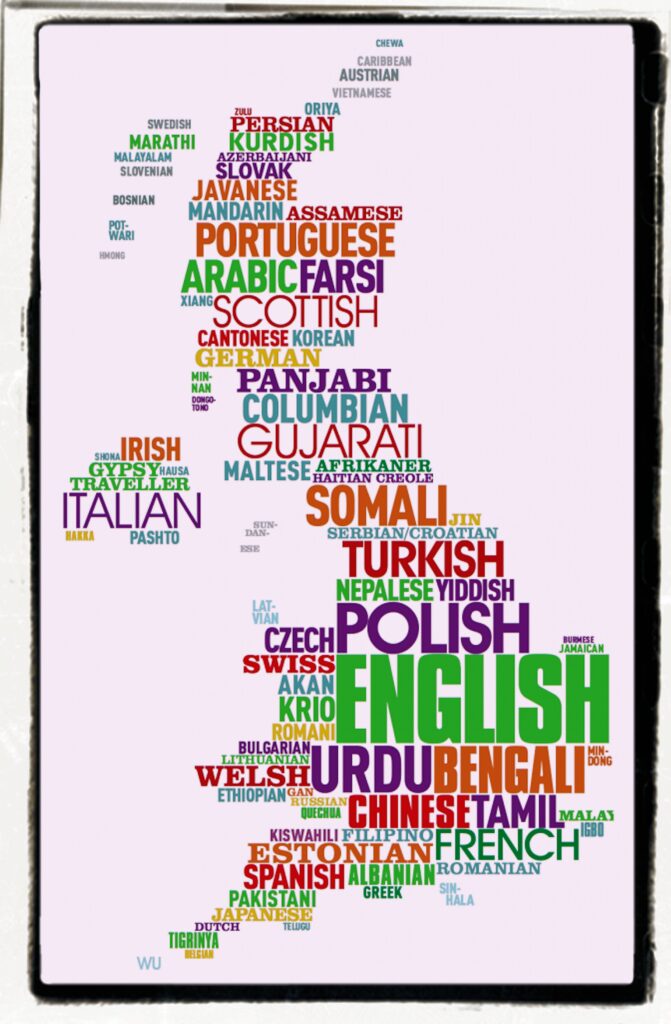
The foreign-born population of the United Kingdom includes immigrants from a wide range of countries who are resident in the United Kingdom. In the period January to December 2016, there were groups from 22 foreign countries that were estimated to consist of at least 100,000 individuals residing in the UK (people born in Poland, India, Pakistan, the Republic of Ireland, Romania, Germany, Bangladesh, South Africa, China, Italy, Nigeria, Lithuania, the United States, France, Spain, the Philippines, Jamaica, Sri Lanka, Australia, Portugal, Kenya and Zimbabwe). The foreign-born population increased from about 5.3 million in 2004 to nearly 9.3 million in 2018. In the decade leading up to 2018, the number of non-EU migrants outnumbered EU migrants while the number of EU migrants increased more rapidly. EU migrants were noted to be less likely to become British citizens than non-EU migrants.
Migrants are much more likely to live in some parts of the UK than others. In 2019, about half of the UK’s foreign-born population (48% in total) were either in London (35% – 3,317,000) or the South East (13% – 1,215,000). Northern Ireland, Wales and the North East have a low share of the UK’s total foreign-born population, at 1–2% each. In comparison, the UK-born population is more evenly distributed. In 2019, only 10% of the UK-born population lived in London. In 2019, India, Poland and Pakistan were the top three countries of birth for the foreign-born, accounting respectively for 9%, 9% and 6% of the total (Figure 5). Poland dropped from the first place in 2018 after roughly 100,000 Poles left the UK over the previous two years. Nevertheless, Poland is still the top country of citizenship of foreign citizens, accounting for 15% of non-UK citizens living in the UK.
Multicultural Britain. The following are extracts from a speech given by Robin Cook, the British Foreign Secretary, in April 2001.
Tonight I want to celebrate Britishness. Sadly, it has become fashionable for some to argue that British identity is under siege, perhaps even in a state of terminal decline. I want to argue that where the pessimists identify a threat, we should instead see developments that will strengthen and renew British identity.
The first element in the debate about the future of Britishness is the changing ethnic composition of the British people. The British are not a race, but a gathering of countless different races and communities. It is not their purity that makes the British unique, but the sheer pluralism of their ancestry.
London was first established as the capital of a Celtic Britain by Romans from Italy. They were in turn driven out by Saxons and Angles from Germany. The great cathedrals of this land were built mostly by Norman bishops, but the religion in them was secured by the succession of a Dutch prince. Outside our Parliament, Richard the Lionheart proudly sits astride his steed, a symbol of courage and defiance. Yet he spoke French much of his life, and depended on the Jewish community of England to put up the ransom that freed him from prison.
The idea that Britain was a “pure” Anglo-Saxon society before the arrival of communities from the Caribbean, Asia and Africa is fantasy. But if this view of British identity is false to our past, it is false to our future too. The global era has produced population movements of a breadth and richness without parallel in history. Today’s London is a perfect hub of the globe. It is home to over thirty ethnic communities of at least 10,000 residents each.
In this city tonight, over 300 languages will be spoken by families over their evening meal at home. This pluralism is not a burden we must reluctantly accept. It is an immense asset that contributes to the cultural and economic vitality of our nation.
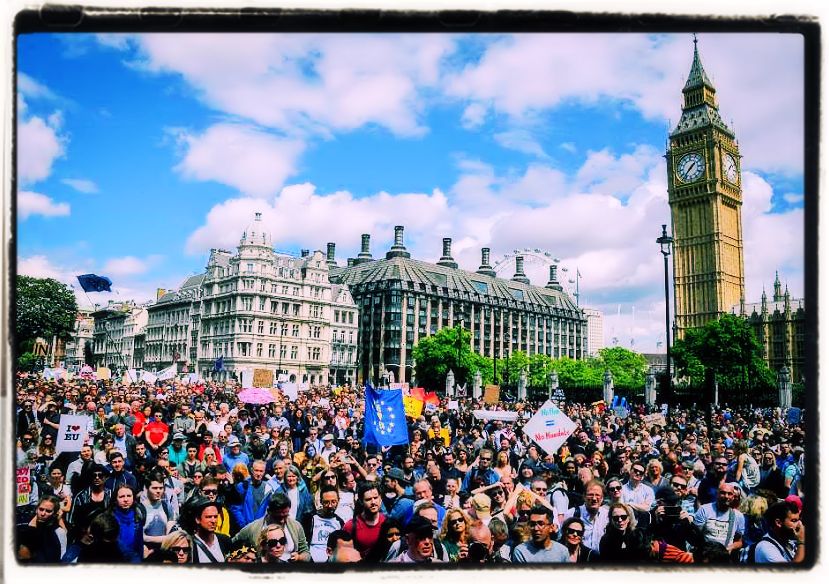
Legitimate immigration is the necessary and unavoidable result of economic success, which generates a demand for labour faster than can be met by the birthrate of a modern developed country. Our cultural diversity is one of the reasons why Britain continues to be the preferred location for multinational companies setting up in Europe.
And it isn’t just our economy that has been enriched by the arrival of new communities. Our lifestyles and cultural horizons have also been broadened in the process. It reaches into every aspect of our national life.
Chicken Tikka Massala is now a true British national dish, not only because it is the most popular, but because it is a perfect illustration of the way Britain absorbs and adapts external influences, Chicken Tikka is an Indian dish. The Massala sauce was added to satisfy the desire of British people to have their meat served in gravy.
The modern notion of national identity cannot be based on race and ethnicity, but must be based on shared ideals and aspirations. Some of the most successful countries in the modern world, such as the United States and Canada, are immigrant societies. Their experience shows how cultural diversity, allied to a shared concept of equal citizenship, can be a source of enormous strength. We should draw inspiration from that experience.

